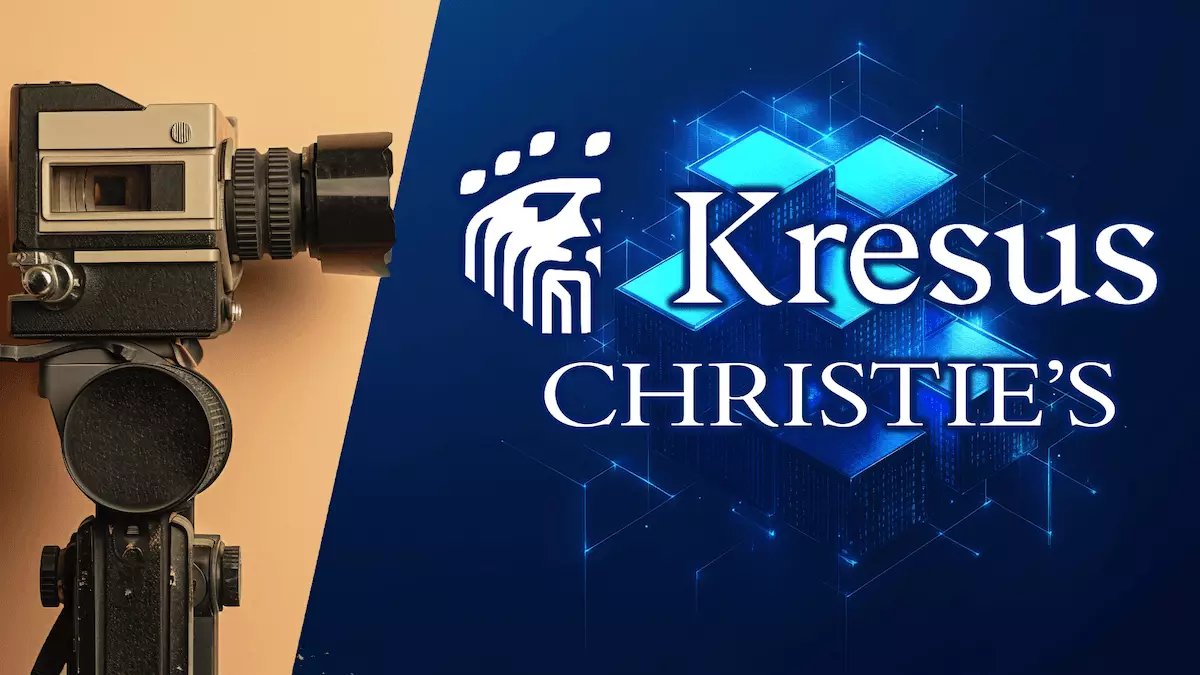In an innovative partnership that bridges the traditional and digital realms, Kresus, a notable provider of cryptocurrency wallets, has united with Christie’s, one of the world’s most prestigious auction houses. This collaboration promises to transform the way art collectors authenticate and safeguard their possessions. By integrating blockchain technology into the age-old practice of art collection, this initiative not only enhances transparency and security but also modernizes the verification process for art collectors.
As part of this groundbreaking pilot program, Kresus will issue blockchain-based ownership certificates for over 130 pieces in the upcoming auction titled “An Eye Towards the Real: Photographs from the Collection of Ambassador Trevor Traina.” Scheduled for October 2, this auction at Christie’s Rockefeller Center will feature a carefully curated selection that not only showcases aesthetic beauty but also emphasizes historical significance. Each lot sold will come with a unique digital certificate recorded on the Base blockchain, ensuring an immutable and verifiable record of ownership accessible through the Kresus wallet.
The significance of these digital certificates cannot be overstated. They represent more than just a technological advancement; they serve as a solution to the longstanding struggles that art collectors face regarding provenance and documentation. Ambassador Traina himself pointed out the burdens of managing traditional paperwork, which often gets stored in file cabinets. His partnership with Christie’s illustrates the ongoing evolution of art collection management into a more streamlined, secure, and technologically advanced arena.
Ambassador Trevor Traina’s collection focuses on mid-century photography, celebrating the work of influential female photographers while tracing the evolution of color photography. This auction features timeless works from renowned artists like Diane Arbus, William Eggleston, Robert Frank, and Cindy Sherman. Collectively, these pieces not only capture pivotal moments in photographic history but also reflect broader societal shifts. By aligning the tangible artworks with digital ownership certificates, this initiative attempts to move the art market towards a future that favors transparency, reliability, and innovation.
Such an approach might very well simplify the buying process for collectors, ensuring that they can verify authenticity without navigating a cumbersome paper trail. It marks a significant step in the broader acceptance of blockchain technology in the art domain, a field that has traditionally relied on less transparent, conventional methods for verifying art ownership and provenance.
Christie’s Commitment to Integrity
For Christie’s, this movement towards blockchain exemplifies its ongoing commitment to authenticity and transparency in the art world. Nicole Sales Giles, Vice President and Director of Digital Art Sales at Christie’s, has voiced enthusiasm about the collaborative effort with Kresus. This partnership is not merely transactional; it represents a shift in how collectors can interact with both physical and digital assets.
With a growing interest in tokens and NFTs, the integration of blockchain-based certificates within a traditional auction setting positions Christie’s at the forefront of this evolution. By leveraging Kresus’s expertise with digital certificates, Christie’s is not only amplifying its commitment to customer protection but is also setting a precedent for forward-thinking innovations within the auction industry.
As we stand on the brink of this partnership’s implementation, one can only ponder the profound implications for the future of art collecting. The combination of Kresus’s blockchain technology with Christie’s prestigious auction framework could redefine best practices for authenticity, largely benefiting collectors and investors alike.
In an era punctuated by technological advances, this innovative approach to art ownership may usher in a new chapter, one that promotes transparency, enhances security, and respects the rich history of artistic expression. The concept of pairing digital technology with the art world not only exemplifies the convergence of culture and technological innovation but also posits an optimistic future for collectors navigating the complexities of provenance in an increasingly digital marketplace.

